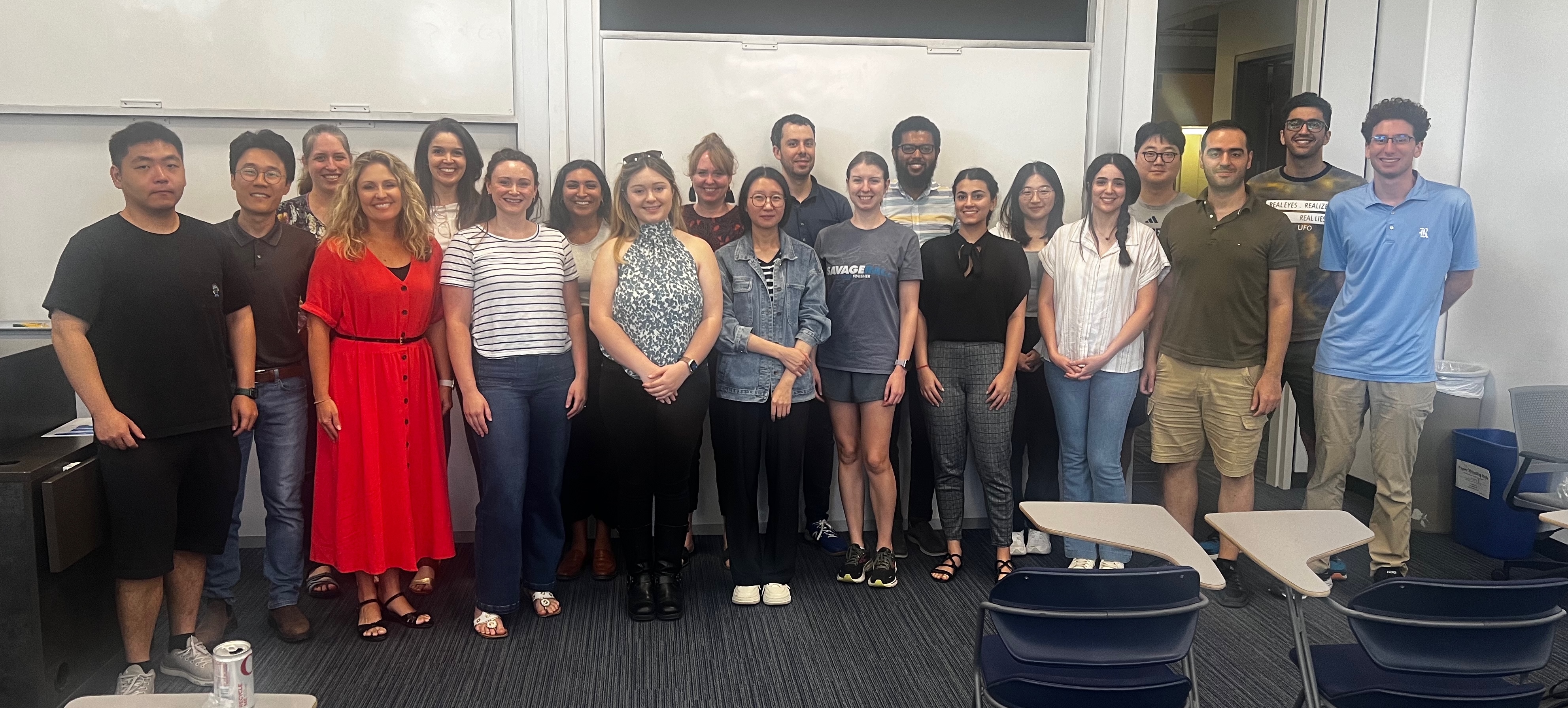Advancing AI for Climate Risk and Urban Resilience
We are a research cluster supported by the Ken Kennedy Institute at Rice University.

Team
PIs
- James Doss-Gollin (CEVE, Lead PI)
- Avantika Gori (CEVE)
- Jamie Padgett (CEVE)
- Arlei Lopes da Silva (CS)
- Noemi Vergopolan (EEPS)
- Sylvia Dee (EEPS)
Affiliates
- Xinwu Qian (CEVE)
- Lu Zhang (CMOR)
- Sang-ri Yi (CEVE)
Fellows
Yanmo Weng is a postdoctoral fellow and the cluster coordinator.
Climate change is intensifying extreme weather events, posing unprecedented risks to urban infrastructure and communities. Managing these risks requires predictive understanding of both natural hazards and the response of human systems. While traditional hazard models shed light on many questions, they are often subject to severe limitations in resolution, computational efficiency, or geographic transferability.
Our research cluster integrates artificial intelligence and machine learning with physics-based models to advance understanding of climate risks and enhance infrastructure resilience. We are working to develop open-source, computationally efficient, and high-resolution models to inform the management of complex, interconnected systems facing extreme weather in a changing climate. Key focus areas include:
- Synthetic Hazard Generation: Creating large datasets of synthetic weather patterns and employing AI for high-resolution downscaling to urban scales.
- Infrastructure Systems Response: Characterizing hazard impacts on critical systems using AI- and optimization-enhanced approaches.
- Multiscale Earth Observation and Data Assimilation: Leveraging heterogeneous datasets from diverse sources to improve model performance and enable real-time initialization.
- Trustworthiness and Validation: Advancing the transparency and reliability of physics-informed AI methods through rigorous evaluation.
Our initial pilot project focuses on real-time flood forecasting and transportation accessibility in the Houston, TX region.
Get Involved
Sign up
We invite the Rice community to join the mailing list to receive updates and announcements.
Summer 2025
During summer 2025, we will host internal research presentations. All members and affiliates, including students, are welcome to join and to present. Join the mailing list to receive updates.